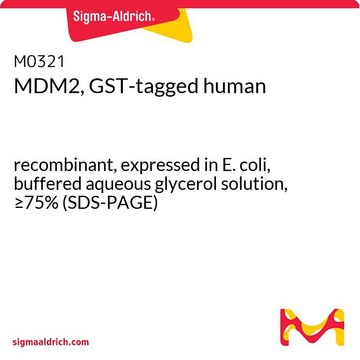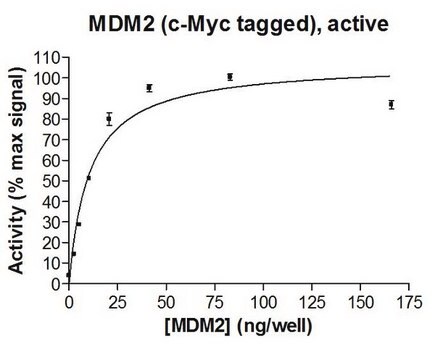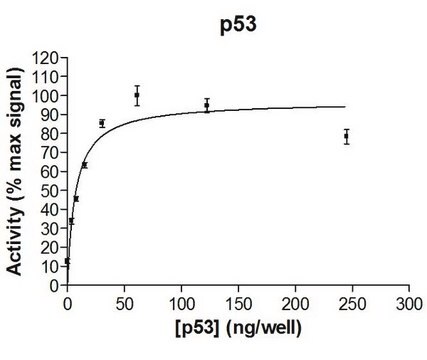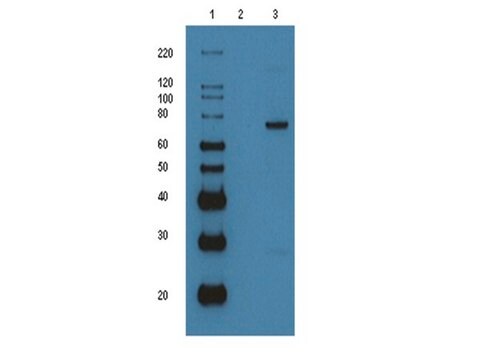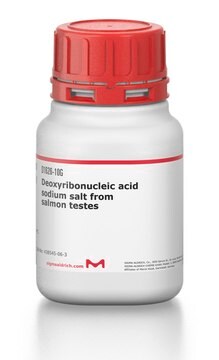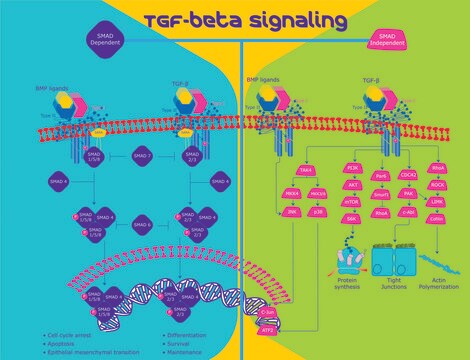SRP2095
MDM2, HIS tagged human
recombinant, expressed in E. coli, ≥80% (SDS-PAGE), buffered aqueous solution
Sinónimos:
HDMX, MGC5370, MGC71221, hdm2
About This Item
Productos recomendados
origen biológico
human
recombinante
expressed in E. coli
etiqueta
8-His tagged (C-terminus. )
Ensayo
≥80% (SDS-PAGE)
Formulario
buffered aqueous solution
frozen liquid
mol peso
~57.8 kDa
envase
pkg of 10 μg
concentración
350 μg/mL
color
clear colorless
Nº de acceso NCBI
Nº de acceso UniProt
Condiciones de envío
dry ice
temp. de almacenamiento
−70°C
Información sobre el gen
human ... MDM2(4193)
Acciones bioquímicas o fisiológicas
Forma física
MDM2 is stored in 20mM Tris-Cl (pH 8.0), 20% Glycerol, 100mM KCl, 1mM DTT and 0.2mM EDTA buffer.
Nota de preparación
Código de clase de almacenamiento
10 - Combustible liquids
Clase de riesgo para el agua (WGK)
WGK 1
Punto de inflamabilidad (°F)
Not applicable
Punto de inflamabilidad (°C)
Not applicable
Elija entre una de las versiones más recientes:
Certificados de análisis (COA)
¿No ve la versión correcta?
Si necesita una versión concreta, puede buscar un certificado específico por el número de lote.
¿Ya tiene este producto?
Encuentre la documentación para los productos que ha comprado recientemente en la Biblioteca de documentos.
Nuestro equipo de científicos tiene experiencia en todas las áreas de investigación: Ciencias de la vida, Ciencia de los materiales, Síntesis química, Cromatografía, Analítica y muchas otras.
Póngase en contacto con el Servicio técnico